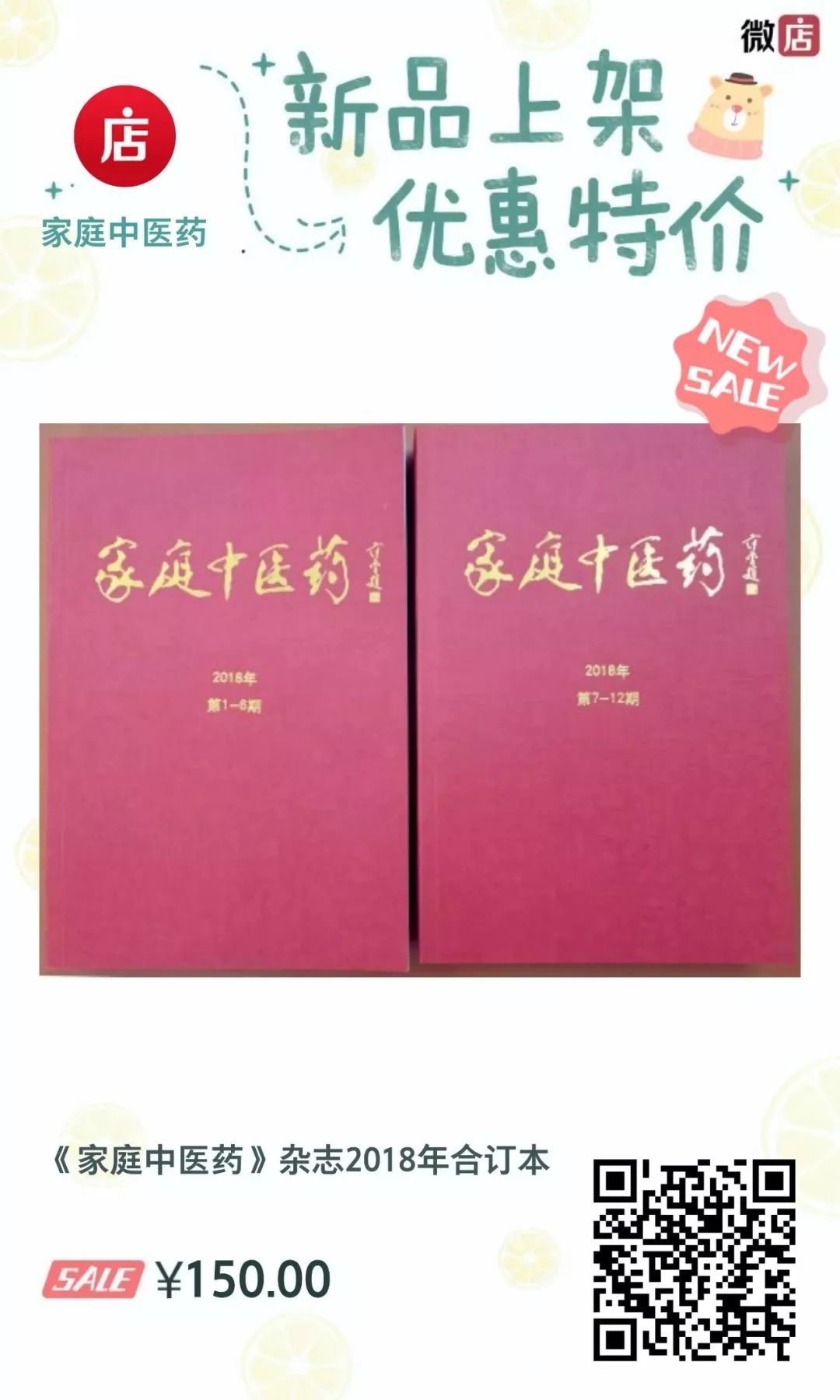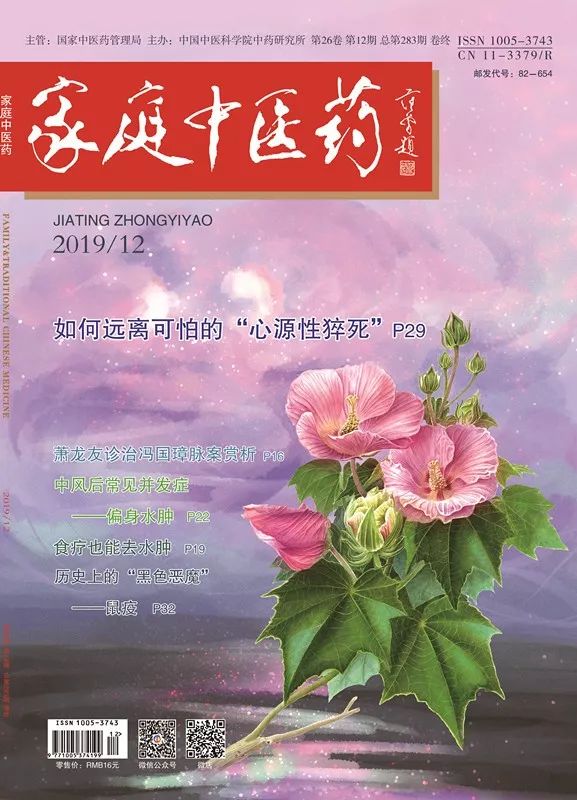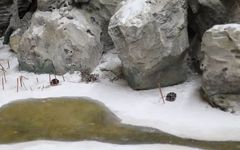
Yang Deficiency and Its Associated Ailments: Winter Recommendations for Warming and Nourishing

Guangzhou University of Chinese Medicine / Fu Jieying

In the Ming Dynasty, physician Zhang Jiebin stated: “The greatest treasure of heaven is this one round red sun; the greatest treasure of man is this one breath of true Yang.” A person with a Yang deficiency constitution has a less radiant red sun and a less warm true Yang. In short, there is insufficient fire energy. Individuals with this constitution should be cautious not to harm Yang Qi, warm and transform water and dampness, and ensure smooth circulation of Qi and blood.
Fear of Cold: Causes of Yang Deficiency
Individuals with a Yang deficiency constitution are particularly sensitive to cold, especially in the back and abdomen, often experiencing cold hands and feet in winter. Many young women also frequently report cold extremities, but if only the fingers and toes are cold, or if the cold does not extend beyond the wrists and ankles, it may not necessarily indicate Yang deficiency; it could also relate to blood deficiency, Qi deficiency, Qi stagnation, or muscle relaxation and weakness.
So, what causes a Yang deficiency constitution?
◆ Congenital Factors
Parents with a Yang deficiency constitution, advanced maternal age, or excessive consumption of cold and cool foods during pregnancy can impact the fetus, leading to a Yang deficiency constitution.
◆ Medication
Long-term use of antibiotics, hormones, diuretics, or cooling detoxifying Chinese herbs, as well as preventive consumption of cold teas or a preference for cold foods, or excessive indulgence in sexual activity, can lead to or exacerbate Yang deficiency.
◆ Age
Age is an unavoidable factor for everyone. Elderly individuals may experience lower back and leg pain, frequent nighttime urination, and sensitivity to cold due to gradually declining Yang Qi, which is a sign of aging rather than illness.
◆ Environment
Yang deficiency is also related to environmental factors. For example, female workers in canning factories who spent long hours washing cans with their hands submerged in cold water, as well as miners and workers in frozen meat processing plants, often develop a pronounced Yang deficiency constitution in middle age due to prolonged exposure to cold and damp environments.

Various Ailments Associated with Yang Deficiency
◆ Obesity
Individuals with a Yang deficiency constitution may have a deep and thin pulse but a good appetite, which can lead to easy weight gain.
◆ Chronic Colitis
Chronic colitis is also related to Yang deficiency, with a reciprocal relationship.
◆ Osteoporosis
Individuals with Yang deficiency are particularly prone to osteoporosis during menopause or old age, which is why many Chinese patent medicines for treating osteoporosis are designed to tonify Kidney Yang.
◆ Bi Syndrome
People with Yang deficiency are prone to Bi syndrome, which refers to the invasion of wind, cold, and dampness, leading to obstruction of blood vessels and causing joint pain, rheumatic arthritis, and rheumatoid arthritis. Women with rheumatoid arthritis often have a constitution characterized by Yang deficiency and Qi deficiency. Therefore, when treating rheumatoid arthritis, it is essential not only to address the disease itself but also to adjust the patient’s constitution by tonifying Yang and Qi.
◆ Edema
Individuals with Yang deficiency are prone to edema. Due to Yang deficiency, water cannot be vaporized and dispersed upward by Yang Qi, but instead flows downward, leading to stagnation and localized edema, especially around the ankles.
◆ Menstrual Irregularities
Women with a Yang deficiency constitution often experience dysmenorrhea, delayed menstruation, or amenorrhea. These women are particularly sensitive to cold exposure before menstruation; some may even experience significant dysmenorrhea or delayed menstruation after taking antibiotics or antiviral medications for a cold. If menstruation is occasionally delayed by no more than one week, it is generally not a concern. However, if it is consistently delayed, such as 45 days one month and 50 days the next, or if it sometimes does not occur at all, prompt treatment is necessary. A Yang deficiency constitution combined with menstrual irregularities can easily lead to cold in the uterus and infertility.
◆ Low Sexual Function
Some patients with Yang deficiency may experience low sexual function and lack of libido. Women may exhibit sexual coldness, while men may commonly experience erectile dysfunction, premature ejaculation, or spermatorrhea.
◆ Poor Sleep
Individuals with a Yang deficiency constitution often have light sleep and are easily awakened. Poor sleep may also contribute to common issues such as obesity and dark circles under the eyes.
Dark circles not only affect appearance but also give a sense of poor health and fatigue, which can be “aesthetic damage.” To treat aesthetic issues, it is essential to first inquire about four key aspects: menstruation, bowel movements, sleep, and emotions. These inquiries can usually reveal the source of the problem. Treatment primarily focuses on regulating menstruation, bowel movements, sleep, and emotions. When encountering insomnia, it is often considered to be related to heart and spleen blood deficiency, Yin deficiency with excessive fire, or disharmony of the stomach leading to restlessness, or Yang deficiency making it difficult to enter Yin. If a person with a Yang deficiency constitution has poor sleep, moxibustion on points such as Shenque (肚脐, navel), Guanyuan (关元), and Zhongji (中极) can often yield good results.
◆ Premature Hair Loss
Individuals with a Yang deficiency constitution are also prone to hair loss, leading to premature baldness.
◆ Acne
Individuals with a Yang deficiency constitution often experience severe acne: cystic acne with significant skin lesions that do not erupt outward but grow inward, creating pits and scars that can last a lifetime. These individuals often have significant Yang deficiency in the lower body, frequently experience nocturia, need to urinate immediately after drinking water, suffer from dysmenorrhea, have a cold lower abdomen, and cold lower limbs, often feeling cold above the knees. This is a case of “upper heat and lower cold,” where the upper heat is false and the lower cold is real. If individuals with Yang deficiency experience throat pain, poor sleep, mild irritability, acne, or halitosis, they should avoid taking cooling detoxifying or heat-clearing laxatives indiscriminately. In TCM, there is a term called “floating Yang,” which refers to the inability of the Yang Qi to be contained below due to excessive deficiency, causing it to float upward. If acne or inflammation recurs and is stubborn, it is often due to lower cold; in this case, warming the lower body and then treating the local area can significantly reduce acne or even prevent it from occurring. This conclusion is drawn from clinical practice rather than theoretical deduction.
◆ Low Blood Pressure, Tinnitus, and Pigmentation
When Qi, blood, and body fluids rise to nourish the head and face under the stimulation of Yang Qi, this is called “clear Yang rising.” When Yang is deficient and clear Yang cannot rise, it may lead to low blood pressure, tinnitus, and pigmentation.
Here, I would like to remind everyone: individuals with Yang deficiency are prone to the condition of “upper heat and lower cold.” If they constantly take cooling herbs or anti-inflammatory medications, it can exacerbate Yang deficiency. I have seen too many cases in clinical practice where the upper heat remains while the lower cold becomes increasingly severe, complicating the illness and making it harder to treat.
◆ Pain Syndromes
Individuals with Yang deficiency are also prone to various pain syndromes characterized by exacerbation upon exposure to cold, such as chest pain (similar to coronary heart disease), abdominal pain (chronic gastroenteritis), joint pain, and headaches. Yang deficiency, Qi stagnation, and blood stasis constitutions are all prone to pain syndromes, but each has its characteristics. For example, pain in individuals with Qi stagnation is often related to emotions and is primarily characterized by distending pain; pain in individuals with blood stasis is related to cold exposure and emotional disharmony, primarily characterized by fixed, stabbing pain.
As individuals with Yang deficiency age, they often present with combinations of the following constitutions: Yang deficiency with blood stasis, and Yang deficiency with phlegm-dampness. This is understandable; Yang deficiency leads to insufficient heat and energy, causing blood vessels to become obstructed, resulting in blood stasis over time; insufficient fluid transformation leads to phlegm-dampness accumulation, causing stagnation.

Seasonal Health: Winter Recommendations for Warming and Nourishing
Winter’s severe cold primarily harms Kidney Yang, damaging muscles, bones, and joints. Therefore, individuals with a Yang deficiency constitution often experience significantly increased nighttime urination, exacerbation of chronic leg pain, and widespread joint pain during winter. These patients can consume lamb, beef, or venison during the coldest days of winter or take tonifying kidney pills such as Zhuang Yao Jian Shen Wan (壮腰健肾丸) or Jin Gui Shen Qi Wan (金匮肾气丸). Elderly individuals in cold northern regions may find that using a dog skin blanket is better than an electric heating blanket, as those with Yang deficiency-related hypertension or insomnia may experience dry mouth, bitter taste, elevated blood pressure, headaches, and a feeling of fullness when using electric blankets.
During winter, special attention should be paid to keeping the joints, lower back, neck, and feet warm. Some girls, wanting to look fashionable, imitate models from Japanese and Korean fashion magazines, dressing warmly on the upper body and head with scarves, hats, and fur coats, while wearing very short skirts and knee-high boots, leaving their knees exposed. The knees are a crucial point where the three Yin and three Yang meridians pass through. When acupuncture points below the knee are stimulated, the needle sensation often struggles to travel upward through the knee joint, indicating that the joint is a node for Qi and blood flow, which is not very smooth, making it particularly sensitive to cold. Therefore, individuals with a Yang deficiency constitution must pay special attention to keeping their joints warm.

Latest Compendium
Now Available!

Under the supervision of the National Administration of Traditional Chinese Medicine
Hosted by the Institute of Chinese Medicine Research, Chinese Academy of Chinese Medical Sciences
Traditional Chinese Medicine Knowledge and Health Information

Retail Price: RMB 16
Postal Code: 82-654


Article copyright belongs to the magazine “Family Traditional Chinese Medicine”; unauthorized reproduction or excerpting is prohibited. Image copyright belongs to the original authors.
Prescriptions should be used under the guidance of a physician.
Edited by: Xiu Long
Submission Email: [email protected]


Click to read the original text
Explore more exciting content

